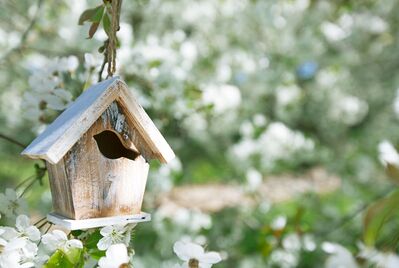First time selling? Here’s your comprehensive guide to property valuations

If you’re new to selling you may have come across the term property valuations. You may also be aware that they are a key starting point for successfully selling your home and getting an accurate and fair price for your property.
In this blog we’ll take a deep dive into what property valuations are, how to prepare for them and what to expect during a valuation.
What is a property valuation?
At its core, a property valuation is an estimate of how much your home is worth. This value is based on several factors, including the current market conditions, the location of your property, its size, condition, and comparable sales (what similar properties in your area have recently sold for).
Understanding your property’s value is essential because it gives you a realistic idea of what price you can expect when you put your home on the market. Getting the price right is critical—overpricing could deter potential buyers, while underpricing means you could miss out on the best return for your investment.
Why are property valuations important?
Setting the right asking price
Your asking price can either make the sale, delay it significantly, or in the worst-case scenario, break the sale altogether. A valuation helps ensure you’re setting a price that reflects the true market value of your home, giving you the best chance to attract serious buyers without leaving money on the table.
Negotiation leverage
If you have a solid understanding of your property’s worth, you’ll be in a better position when it comes to negotiating a fair price for your property. You can confidently justify your asking price and push back against low offers when you’re equipped with the right information.
Faster sales process
Homes that are priced right from the start tend to sell faster without further delays. A property valued accurately will generate more interest from buyers, leading to a quick and smooth sale.
How is a property valuation carried out?
While there are multiple ways to carry out a property valuation, generally, there are three core methods to determine a property’s value. These include:
Comparative market analysis (CMA)
Estate agents often use this method to assess your home’s value and it involves looking at recent sales of similar properties in your area. For instance, if a house down the street gets sold for a set price, and that house is similar to yours, that figure gives a good indication of what buyers are willing to pay for your property.
Formal valuation by a surveyor
A qualified surveyor provides a more detailed and official report, often needed if you’re remortgaging or dealing with legal matters like probate or divorce. They’ll inspect your home thoroughly and provide a written report on its market value, taking into account both the physical condition and external factors, such as local infrastructure and future developments in your area.
Automated valuation models (AVMs): Instant and online valuations
AVMs, commonly known as instant valuations or online valuations, use algorithms to estimate a property’s value based on data like property listings, sales history, and market trends. While convenient and fast, online valuations are often less accurate, as they don’t consider the unique qualities of your home, such as renovations or its current condition.
What are the factors that can affect your property’s valuation?
Several factors influence how much your property is worth. Here are some key ones:
- Location: Homes which are located in desirable areas with good schools, access to transport links, and amenities tend to be valued higher.
- Size and layout: More square footage usually means a higher valuation. However, layout matters as a property with an awkward floor plan could reduce the value
- Condition: A home in great condition with modern fittings and no structural issues will score a higher valuation and is more likely to meet the asking price. If you’re looking to sell you’re your play, it might be worth investing in any affordable repairs or renovations to further boost the overall value of your home.
- Current market conditions: If the housing market has high demand for homes, your property could be worth more than it would in a “cooler” market where values may dip.
- Comparable sales: The prices of similar homes sold recently in your neighbourhood will directly impact your valuation.
What should you expect during the valuation process?
If you decide to go ahead with the sale of your property and book a valuation, here’s what the process will look like:
Book a free property valuation
You would first book a valuation with your estate agent at an agreed time and date that suits you best. At Lawlors our property experts will use their local knowledge and expertise to give you an accurate sales valuation to ensure you get the right price for your property.
An initial consultation
Our property expert would then visit your property and view it with you and ask about any updates or changes you’ve made to the home. You will be able to share information about features in the property that may enhance the property value such as a new kitchen, bathroom or upgrades.
Property inspection
Our valuation manager will walk through your home, noting details such as its size, layout, condition, and features. They’ll assess the exterior and interior of your property, ensuring everything from kerb appeal to the state of the roof is factored into the valuation.
Researching comparable properties
We would also compare your home with others recently sold in the area. These comps will be similar in size, condition, and location, helping to gauge what buyers are currently willing to pay.
Getting your property valuation report
Once the inspection and research are complete, you’ll receive a valuation report that outlines the estimated market value of your property, often alongside a recommended asking price.
What to do with your property valuation
After your property valuation has been completed, you’ll have a better understanding of where your home stands in the current market. From here, consider the following steps:
Decide on a competitive asking price
Use the valuation to set a fair asking price that is both attractive to buyers and reflective of your home’s true worth. While it may be tempting to overprice your home, this may prove disruptive to a straightforward sale, with potential delays further down the road if you have to later re-think the asking price.
Prepare your home for sale
If the valuation highlights areas that could boost your property’s value, like minor repairs or renovations, consider tackling these before listing your home.
Work with your agent
Your estate agent will use the valuation report to market your property effectively, ensuring they highlight features that can justify the price. At Lawlors, we will talk you through our property marketing options that include professional photography and floorplans. We will let you know how we’ll market your property through emails and calls to our large database of buyers and renters as well as listing on leading property portals, our own website and social media channels.
In a nutshell, getting your property valuation right is crucial for a successful and straightforward sale. It helps you set the right price, attract buyers, and negotiate effectively. Whether you're working with an estate agent or doing your own research, understanding the factors that impact your home’s value will give you the confidence to navigate the process and sell your property for the best price possible.
If you’re ready to sell, book a valuation with us today and let’s get your property sold in the best time, at the best possible price. Our valuations are completely free of charge and conducted by a member of our team of property experts.






